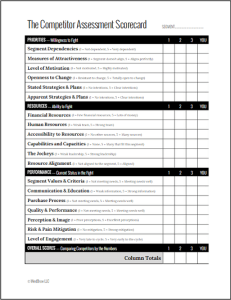The role of “sales manager” has evolved significantly over the years. Gone are the days when sales managers were solely focused on enforcing quotas and cajoling their teams into hitting targets. Today, the concept of sales managers acting as “sales coaches” has gained widespread popularity and adoption.
And it’s compelling concept for several reasons…
First, it aligns with many of the broader trends in management that tend to emphasize empowerment, support, and talent development rather than top-down command and control. The coaching concept is seen as a way to unlock the full potential of individual salespeople, helping them to refine their skills, develop self-discipline, and overcome challenges. This approach also supports the notion that sales effectiveness is about so much more than just the numbers.
However, while the concept of sales coaching is very appealing…and quite sound in theory…its execution often leaves a lot to be desired.
In practice, many sales managers will struggle to get beyond basic motivation. These managers might be great at offering encouragement and rallying their team members toward a goal. But when it comes to providing substantive, actionable guidance, they will very often fall short.
This gap between theory and practice can lead to frustration on both sides, as managers feel that their efforts aren’t translating into results, while sales reps find the so-called coaching to be largely superficial and unhelpful.
The crux of the issue lies in the fact that effective coaching requires more than enthusiasm and some motivational skills. It demands a deep understanding of the sales process, the ability to analyze data, and the skills to translate data-driven insights into specific, actionable advice and recommendations.
Unfortunately, many sales managers, despite their experience, just do not have the tools or training necessary to deliver this level of coaching. So it’s little wonder that coaching efforts will often end up being little more than cheerleading exercises, offering generic advice that does little to address the unique challenges and opportunities faced by individual team members.
This is where Sales Operations teams can play a crucial role.
Sales Ops professionals are uniquely positioned to provide the data-driven insights and strategic support that can elevate coaching from mere motivation to something truly impactful. By leveraging the vast amounts of pipeline and performance data at their disposal, Sales Ops can help sales managers identify specific opportunities and key areas for improvement, tailor their coaching to the needs of individual reps, and ultimately drive better outcomes across the entire sales operation.
One of the most powerful ways Sales Ops can enhance coaching is by using data to identify next-best prospects in the broader marketplace.
Sales managers often struggle to prioritize leads and opportunities effectively, relying on intuition or past experiences rather than hard data. Sales Ops can provide a more scientific approach, using advanced analytics to surface the high-potential prospects that are most likely to convert. This not only helps salespeople focus their efforts where they are most likely to succeed, it also allows managers to provide more targeted coaching that is grounded in data.
Similarly, Sales Ops can help sales managers identify and prioritize cross-sell and up-sell opportunities at the account level.
While these expansion opportunities can be a significant source of organic revenue growth, they will often go undetected because they are so difficult to spot with the naked eye. But by analyzing customer sales data and studying purchasing patterns, Sales Operations can identify and quantify these untapped opportunities and equip sales managers to coach their direct reports on how best to capitalize on them.
Retention and renewal are still other areas where Sales Ops can add significant value to the sales coaching endeavors.
In many organizations, retention efforts are reactive, with salespeople only intervening when a customer expresses dissatisfaction or signals an intention to leave. Sales Ops can get ahead of this by providing early-warning alerts based on the data, allowing sales managers to coach their teams on proactive strategies for retaining key accounts. This might involve identifying at-risk customers based on usage patterns or satisfaction scores, or it could mean highlighting renewal opportunities well in advance of contract expiration.
In all of these areas, the key to effective sales coaching is to move beyond generic advice and cheerleading to offer specific, actionable guidance that is tailored to the needs of individual reps and accounts. And Sales Ops is in an ideal position to provide the data and insights that sales managers desperately need to make all of that happen.














